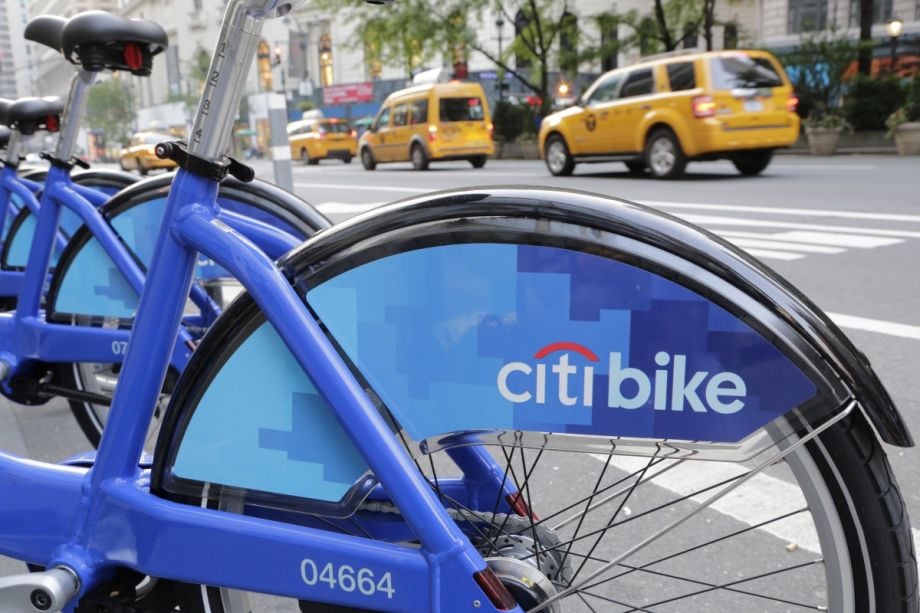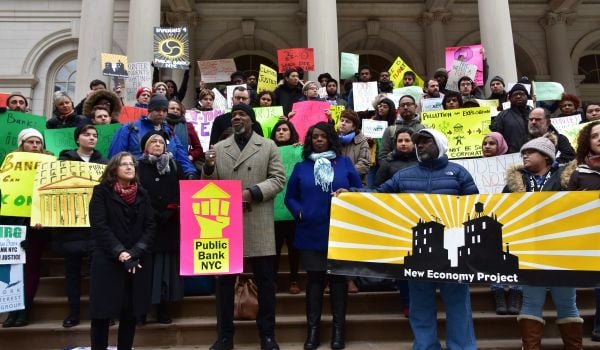The bikes themselves have become emblematic of the troubles within New York’s bike-sharing system: painted white, chopped into pieces and thrown away like garbage, even leaning up against a pole on a sidewalk in suburban Long Island. Citi Bike, launched just over a year ago, immediately became a huge popular success, with more than 100,000 annual members signing up in the first year. The business model for the system was a public-private partnership in which Citibank and MasterCard put up the capital investment, a private company controlled operations, and New York taxpayers didn’t have to pay a dime to get what amounted to a whole new public transportation system. It was touted by the outgoing Bloomberg administration as a model for other cities.
But management problems and financial shortfalls have meant layoffs and cutbacks that have severely affected service. Docking stations often remain out of balance — either completely empty or completely full. Broken docks are a common sight at stations around town, a likely factor in the epidemic of “escaped” bikes like the one spotted on Long Island recently.
At the same time, parts of the city that were promised their own bike-share stations when the program first rolled out are still waiting, with no clear information coming from either the city or NYC Bike Share, the private operating agency in charge, about when the system might actually expand. For people who want to use Citi Bike as a reliable form of transportation — for their commutes, for instance — this uncertainty has been a big disincentive.
All the dysfunction and mystery has dampened initial enthusiasm over the nation’s largest bike-share sytem, and membership numbers dropped from 105,355 to 96,318 as the one-year anniversary of the launch rolled past at the end of May.
Now, as the New York Times reported last week, there’s a deal on the table that will bring a new player into the bike-share scheme. REQX, a partnership of folks involved with real estate giant Related and Equinox, a high-end gym. According to the Times, the deal — which has yet to be finalized — would raise the cost of yearly memberships to $155 from $95 and expand the system from just over 6,000 bikes to 12,000 by the end of 2017, while also extending its geographic reach. The agreement reportedly would also take much of the control of the system away from Alta, the parent company of NYC Bike Share. Alta has been one of the prime forces behind bike-share in the United States, operating systems in Boston, Chicago and Washington, D.C., among other cities.
For people who want to see bike-share succeed in New York, news that a new team might be taking over is welcome. Without an intervention, the system as it is being operated now seems headed for an inevitable decline, which would be very sad.
The question is, would the city be better off looking at a different model, one in which the public sector takes more control and more accountability, in exchange for greater transparency about the way bike-share is being handled?
A statement from Mayor Bill de Blasio’s office to the Times said that bike-share “has become part of our public transportation system, and there is a lot riding on its success.” Why, then, does the administration remain adamant in its opposition to putting at least some public money into the system? Other cities have done it. Both Washington, D.C. and Chicago, for instance, both used both federal and local funding to implement bike-share. That allows the cities more control over the way the systems are managed — and gives the public the ability to get more answers about operations and plans for the future.
Bike-share remains a new concept for cities in the United States, and growing pains were inevitable. In many cities, systems are thriving on a smaller scale. Still, the failure of New York’s system would be a tough blow to absorb for advocates of bike-share as public transportation. That’s why it would be great to see the city put some skin in the game. Until New York starts treating bike-share as the public amenity that it is, this potentially game-changing addition to the city’s transportation infrastructure will remain subject to the vicissitudes of deals made behind closed doors by private interests.
The Works is made possible with the support of the Surdna Foundation.

Sarah Goodyear has written about cities for a variety of publications, including CityLab, Grist and Streetsblog. She lives in Brooklyn.

















